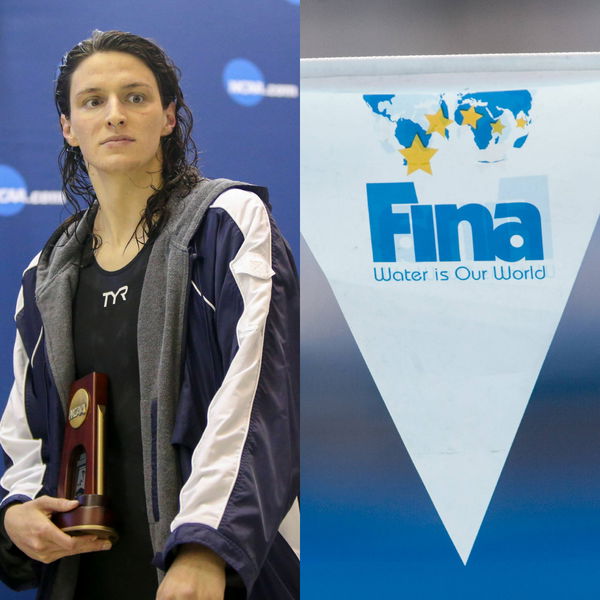
via Imago
Image Courtesy: Imago

via Imago
Image Courtesy: Imago
One of the most contentious notions in the sports community at present is transgender athletes competing in the same category as ‘biological’ and binary athletes. The world of swimming has also not been immune to this controversy. It all began when the trans swimmer Lia Thomas was allowed to compete in the women’s category by the NCAA, where she dominated. Riley Gaines, a female swimmer, made her thoughts on the issue clear. She thought it was unfair to the other women athletes.
This led to a huge controversy, with the sports community completely divided on the topic. While some sided with Riley Gaines, others supported the NCAA’s decision to let Lia Thomas compete in the women’s category. After the controversy blew over in the swimming circles, the authorities decided to take some action. To ensure fairness to all the stakeholders, the FINA (International Swimming Federation) has introduced a new category in swimming for transgender athletes.
ADVERTISEMENT
Article continues below this ad
Swimming gets a brand-new category
FINA, which was renamed to World Aquatics in January 2023, recently declared that transgenders will be able to compete in a category dedicated solely to them. The organization announced that it will be introducing a new category called the ‘Open’ category for all transgender athletes. The announcement comes after FINA became one of the organizations to impose restrictions on transgender athletes in swimming.

via Getty
ATLANTA, GA – MARCH 18: University of Pennsylvania swimmer Lia Thomas on the starting block for the 200 Freestyle final during the NCAA Swimming and Diving Championships on March 18th, 2022 at the McAuley Aquatic Center in Atlanta Georgia. (Photo by Rich von Biberstein/Icon Sportswire via Getty Images)
The new category, according to a report by Forbes, will include all athletes whose gender identity differed from the gender assigned to them at birth. Before this change in rules and the introduction of the new category, FINA restricted transgenders from competing in the female category last year. According to the rule made, any transgender woman who went through male puberty or had gender-reassignment surgery after the age of 12 would not be allowed to compete in the women’s category. FINA is not the only organization that has come up with restrictions for trans-athletes.
In July this year, the Union Cycliste Internationale (UCI) restricted athletes who transitioned after male puberty to compete with females to “ensure equal opportunity.” In March 2023, World Athletics restricted the amount of testosterone that an athlete can have for them to compete in the female category. The cap was put at 2.5 nanomoles per liter. In July last year, The British Triathlon Federation also introduced an ‘Open’ category for transgender athletes citing that they have certain “physiology advantages”. when it comes to swimming, the Riley Gaines and Lia Thomas controversy was at the heart of this change.
Riley Gaines X Lia Thomas: What went down?
During an episode of OutKick OTT podcast, “Gaines For Girls”, Riley discussed the participation of transgender women in the female category and shared her views on the fairness and equal opportunity provided to females in sports. Riley Gaines was at the top of her swimming career when Lia Thomas started competing in the female category. After citing a locker room incident that, according to Gaines, left her traumatized, she left her swimming career to protest against the decision of the NCAA.
ADVERTISEMENT
Article continues below this ad

ADVERTISEMENT
Article continues below this ad
For Gaines, the solution was to have separate locker rooms, even a separate category for transgender athletes. Her view was that this decision would provide equal opportunity for trans and female athletes. The new ‘Open’ category in swimming seems to be a result of the same thought process. Although, how the same will be received by the trans athletes, and the sports world in general, is something only time will tell.
Watch This Story: West Michigan Doctor Embarks on Epic Challenge, Swimming Across Lake Michigan to Raise $12,000 for a Worthy Cause
ADVERTISEMENT
ADVERTISEMENT
ADVERTISEMENT
ADVERTISEMENT

